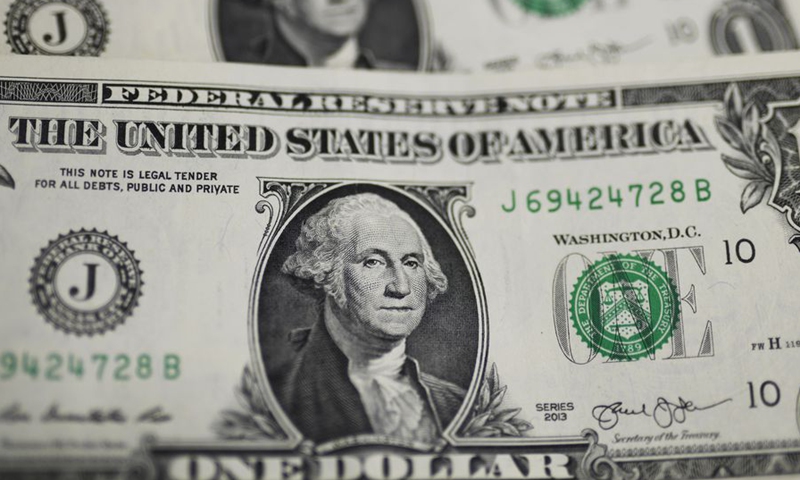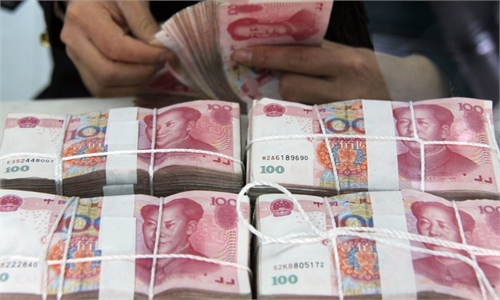China should restructure overseas assets, liabilities, while maintain capital controls: economist

Photo taken on Sep 18, 2019 shows US dollar banknotes in Washington DC, the United States. File photo:Xinhua
China needs to restructure overseas assets and liabilities, in a bid to improve net returns on overseas investments and reduce the share of foreign exchange reserves tied up in the country’s overseas assets, a renowned economist said at a key forum on Saturday, calling attention to the security of China’s massive US dollar-denominated assets.
Yu Yongding, a member of the Chinese Academy of Social Sciences, made the remarks via video during the Tsinghua PBCSF Chief Economists Forum held in Beijing, which focused on the country’s economic and policy outlook amid geopolitical uncertainty and economic pressure this year.
Yu stressed the need to maintain capital controls to curb hot money inflows and capital flight.
Under the current dollar-based international monetary system, there remains an inherent contradiction that the US can provide the world with dollar liquidity only by maintaining a current-account deficit. However, the greater the trade deficit maintained by the US, the greater the likelihood that the dollar will depreciate, Yu said.
In regards to the US’ move to freeze $300 billion of Russian assets following the Russia-Ukraine conflict, Yu believed that the move has seriously damaged the creditworthiness of the US. The status of the dollar as an international reserve currency has also been battered.
According to the economist, the US had $15 trillion in net foreign debt at the end of 2021. That the dollar has been able to remain stable despite the rising ratio of US foreign debt to GDP is due to the strong demand for the dollar as a reserve currency from the rest of the world, especially China.
Among them, five countries — Japan, China, the UK, Ireland and Luxembourg — have purchased $3.6 trillion in US Treasuries.
For a long time, China has accumulated $3.3 trillion in dollar reserves through current-account receipts and capital account surplus.
Yu noted that the figure exceeds the requirement of foreign exchange reserve adequacy. A significant portion of foreign exchange reserves are "borrowed" from the capital account surplus, rather than being earned from the trade surplus.
Therefore, “China's overseas assets and liabilities need to be restructured to enhance security,” Yu said, suggesting that authorities reduce holdings of US Treasuries and increase holdings of other forms of assets, increase investments in strategic resource-producing countries, and strictly protect foreign investors in China.
Moreover, the government should consider expansionary fiscal and monetary policies to stimulate domestic demand and spur imports. The country could also increase imports of commodities and strategic goods, in addition to reduced purchases of US Treasuries and greater imports of US products, the economist suggested.
Maintaining a trade deficit at a specific time to use up excess foreign exchange reserves could be among the policy fine-tuning options available, he noted.
Global Times


